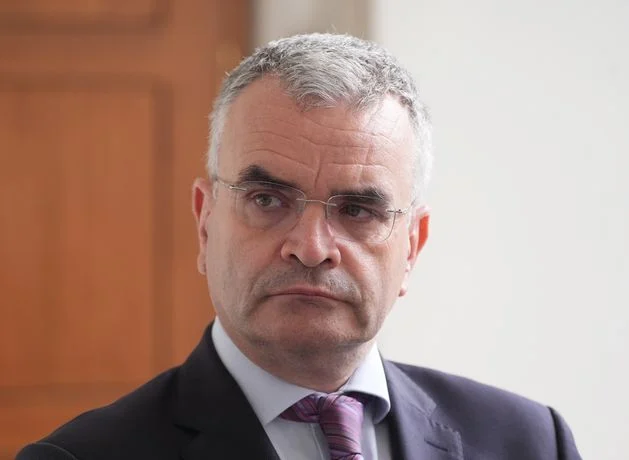Government accused of ‘sting in the tail’ to middle income workers as €10 budget hike will not apply to new benefit

Most social welfare recipients are set to get a €10 increase to their weekly payments from January but those on a new pay-related jobseeker’s benefit will not.
A spokesperson at the Department of Social Protection confirmed that Budget 2026 “does not provide for a change in the rates of jobseeker’s pay-related benefit”.
The payment is linked to a worker’s previous wage and was introduced to help avoid an income shock if they lose their job.
Social Protection Minister Dara Calleary. Photo: PA
Today’s News in 90 Seconds – Wednesday, November 12
The maximum weekly payment is worth up to 60pc of a worker’s former earnings, capped at €450 a week for 13 weeks. After that, the maximum rate falls.
In a letter to ministers Jack Chambers, Paschal Donohoe and Dara Calleary, general secretary of the Irish Congress of Trade Unions Owen Reidy accused the government of allowing the payment to “wither on the vine”.
He spoke of his organisation’s anger at the exclusion of the new benefit from the €10 general rate increase to core weekly payments in the budget.
Mr Reidy said the top rates of the payment – €450, €375 and €300 – remain unchanged since the scheme was designed in 2022.
“In the three years since, the personal rate of all other core weekly payments and pensions increased by €36 per week, rising to €46 from January 2026,” he said.
He said the freeze on jobseeker’s pay-related benefit undermines the “raison d’etre” of the payment.
Mr Reidy said former Minister for Social Protection, Heather Humphreys, said the payment is all about providing workers with a greater safety net and cushioning them from a sudden cliff-edge drop in income.
“Holding the weekly payment caps at their 2022 level; not adjusting to take account of inflation or wage growth, will mean the budget failed to address sharp income cliff-edges,” he said.
He said workers are paying a higher PRSI contribution to fund the benefit.
“From 2028, workers and their employers, on their behalf, will be contributing an additional €1.6bn annually,” he said. “All the while, government is letting jobseeker’s pay-related benefit wither on the vine.”
He claimed this “parsimonious approach” to costs from the Social Insurance Fund is in stark contrast to recent government decisions that relate to employers.
He said the Social Welfare Bill gives an opportunity for Government to rectify the issue.
Laura Bambrick, social policy spokeswoman at Ictu, said the freeze on jobseeker’s pay-related benefit was “buried” in the details of the budget.
“The €29bn social welfare package for next year comes with a sting in the tail for those with a long history of working and paying PRSI,” she said.
“Workers are paying extra PRSI to fund this new payment, which is intended to insure them against a collapse in income in the first weeks after losing their job.
“That was the deal – pay higher PRSI for a higher payout. “
She said the average worker paid an extra €52 in PRSI this year and will pay an extra €104 next year.
“But government is refusing to keep their side of the deal, with the payment rate frozen since 2022,” she said. “Meanwhile, wages and living costs have risen and all other weekly social welfare payments have increased by €36 per week, rising to €46 from January.”
In a response to the Ictu letter on November 4, Minister Calleary said jobseeker’s pay-related benefit is a fundamentally new scheme and is being monitored as the “first full cycle of the scheme progresses”.
“My department is assessing the impact of the scheme and of the pay-related approach to a benefit payment, in terms of economic and behavioural metrics, and will consider any potential changes as the scheme continues to roll out,” he said.
He said that Mr Reidy’s comments in relation to the approach to the scheme have been noted and will be considered in the context of any future changes.
“Budget 2026 increased the national minimum wage, which means that people earning the national minimum wage who become unemployed will benefit from a higher rate of jobseeker’s pay-related benefit than previously,” said the minister.
He said the average weekly payment is €394.20 for the initial 13 week period of entitlement for those with five years of PRSI contributions.
A department spokesperson said the maximum rates available on jobseeker’s pay-related benefit are €450 and €300, depending on their contributions.
She said they are higher than the rates for other jobseeker and social welfare schemes, which will increase to €254 from January.
“The scheme differs from other social welfare schemes in that payment rates are directly linked to a person’s previous earnings, subject to maximum and minimum rates of payment,” she said.





